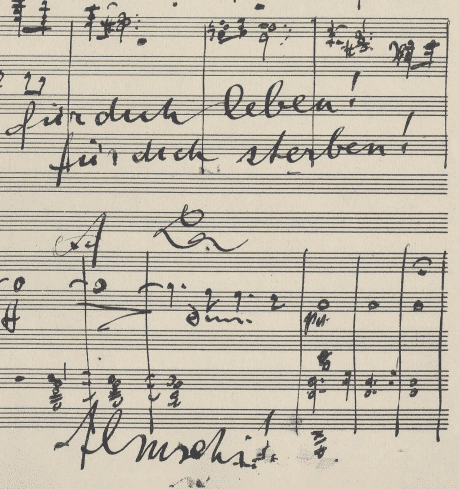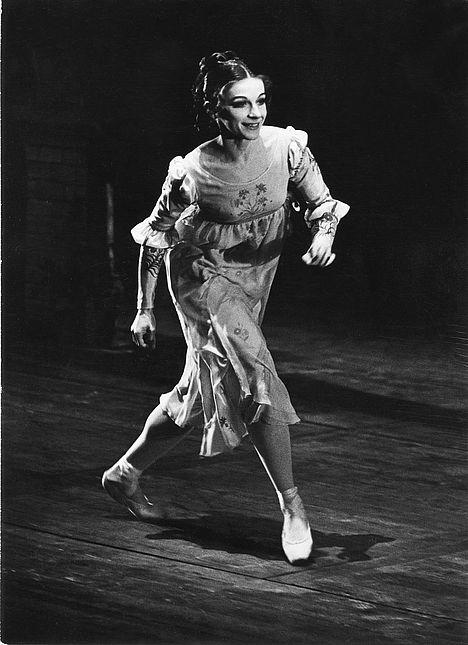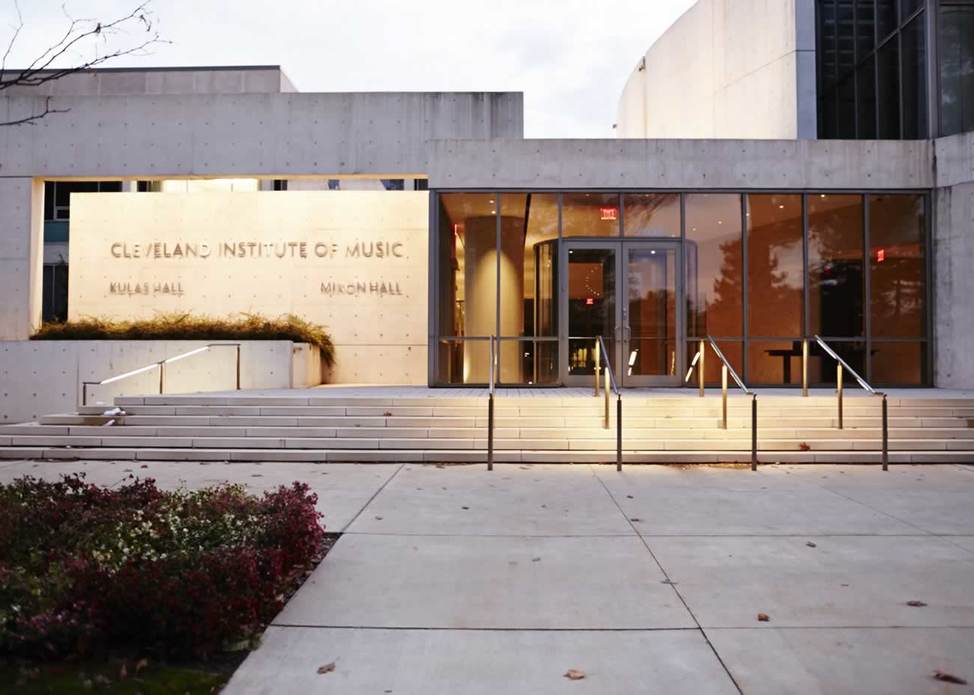Mengelberg’s Tenth?
mainPress release from the Concertgebouw:
On 8, 9 and 10 January 2020, Jaap van Zweden will be conducting the Concertgebouworkest. The programme includes a two-part version of Mahler’s Symphony No. 10 completed by Willem Mengelberg. This little-known version features both the Adagio as well as the ‘Purgatorio’, and has not been performed since the world premiere given by Mengelberg and the Concertgebouworkest in 1924. Van Zweden, music director of the New York Philharmonic Orchestra – a post Gustav Mahler himself once held – is juxtaposing this work with a world premiere by the Dutch composer Martijn Padding, Softly Bouncing, and Stravinsky’s Le sacre du printemps.






The concert has been sold-out already 2 months ago.
The realtionship between Mengelberg and Mahler was very strong. Mengelberg understood before everybody the importance of his music. Haitink and Chailly understood perfectly that also during their times at the magic square and they worked with the notes of Mengelberg for Mahler. van Zweden who worked as the fisrt violine in the 80’s at gebouw has all the qualities to do very good job.
And van Beinum?
Perdro, I can’t tell you if you are wright. He didn’t stay a long time at the top of Concertgebouw. I know that even after WWII Mahler was not played so much. It staterted realy in the 60’s with
Kubelik Bernstein of course and Haitink. It seems very strange today but it’s a reality. The other reality is that the Concertgebouw has a relationship in the time with Mahler unic the two others giants Berlin and Vienna don’t have even if Mahler worked at Vienna. His music was not loved in Vienna like in Amsterdam
Came later.
Van Zweden’s affinity with Wagner, Brahms, Bruckner, and Mahler are related to the KCO’s sound, but he brings that sound to the other orchestras he works with.
I can believe you.
Mengelberg, Deryck Cooke and some others are sitting in a corner and Mahler’s standing with his arms crossed at the opposite end of the room flanked by Mozart, Wagner and Tchaikovsky shouting,
WHAT THE F$%K!! YOU AMATEURS MESS WITH MY SKETCHES !!!?!!
Not flanked by Wagner, I’m quite sure of that.
I think he would be happy that people want to hear more Mahler. No one wanted to hear him when he was alive.
That is not quite true. Mahler was performed during his life time and not only by himself. Only, interest did not go beyond a niche one, it was odd music at the time. And much critique of his symphonies was motivated by antisemitism.
The story of the completions after Mahler’s death is a fascinating one. I know many conductors stay away from the completions, generally preferring to perform the adagio if that (Solti, I think, stayed away from all of it.) There are many fine recordings of Cooke’s last version that do justice to the work. No, we don’t know how Mahler would have shaped and completed the work had he lived, but I am happy to have the completion in my life in the absence of silence. The term “sketches” isn’t representative of what Mahler left of the work at his death. If you have only heard the adagio, try the Dausgaard recording (Seattle). I doubt whether Mahler would have considered Mengelberg (or Cooke, for that matter) an amateur. Alma Mahler was originally against performances of the completion, but changed her mind after listening to a BBC recording and to Cooke’s thoughts on the completion. Apparently she wrote to Cooke in 1963:
Dear Mr. Cooke,
Mr. Harold Byrns visited me here in New York. Today he read me your excellent articles on Mahler’s Tenth Symphony and [showed me] your equally authoritative score. Afterwards I expressed my desire to finally listen to the London BBC tape. I was so moved by this performance that I immediately asked Mr. Byrns to play the work a second time. I then realised that the time had come when I must reconsider my previous decision not to permit the performance of this work. I have now decided once and for all to give you full permission to go ahead with performances in any part of the world. I enclose [a] copy of my letter of even date to [the] BBC.
Sincerely yours,
Alma Maria Mahler
And we’re very glad they did! The 10th is a terrific work, regardless of how it was put in order to perform. I’m grateful that Alma didn’t destroy the sketches; that’s apparently what Gustav wanted.
Well, Mahler himself didn’t hesitate to mess with Beethoven’s orchestration. And without “amateurs” (Is Mengelberg an amateur? What about Süssmayr?) “messing with sketches” we’d have to go without “Mozart’s Requiem” as well, since the version most have been hearing for two centuries is the Süssmayr completion.
Besides, the opening Adagio and the Purgatorio were the two movement most substantially complete at Mahler’s death, right? How much, then did Mengelberg actually have to “mess with” the sketches to produce his 2-movement performing version?
Nonsense.
Mahler left enough material to offer possible completions. And not only musicologists were involved, there were also the old composer Berthold Goldschmidt (former student of Franz Schreker who came from Mahler’s circle in Vienna) who helped Deryck Cooke decyphering the sketches, and British composers David Matthews and Colin Matthews who filled in some blanks based upon their own experiences. As always with Mahler, it are the notes and their relationships which are the heart of hte music, all the scoring is to make the notes more clear and expressive, so you can get quite far with a completion. Als, such completions are never presented as ‘the’ Mahler 10, but as a ‘performing version of the sketches’.
So, by that same token, Weber should have upbraided Mahler over Die Drei Pintos, then?
His recording of the 4th Symphony is unlike any other I’ve heard and is wholly convincing.
Their new chef conductor!!
I hope not. Holland being a very provincial country, anybody famous abroad is hailed as father christmas, but as soon as they are staying in the country, he becomes one of them and he will be treated as a doormat (that happened to quite some foreigners in Dutch music life, like Libor Pesek). Van Zweden only became world famous in Holland after he became world famous in the world. Many great talents had to flee the country and make a career abroad before they were recognized at home, and Van Zweden is no exception. So, I wish him many invitations by the KCO but hopefully as a guest.
“Purists” quite often express abhorrence to the idea that Mengelberg, Cooke, and others have done “completions” of Mahler’s Tenth Symphony. This based on their view of what Mahler would have “thought” about such a task.
This completely ignores Mahler’s completion of von Weber’s “Die drei Pintos” (The Three Pintos) opera after von Weber’s death. This included Mahler writing over a dozen songs in the opera “in the style of von Weber’s themes”.
When I first became a “Mahlerite” I too thought the purist position barred me from listening to the completions of his Tenth. I no longer believe this is the case. Mahler’s Tenth is a vitally important work as a bridge between the Romantic Era and the Modern Era of classical music.
All of Mahler’s works are to be valued for what they are, as musical works in themselves, and not for their so-called position in a projected ‘a posteriori’ development. Postwar historiography has falsily claimed a ‘line of development’ from Wagner’s Tristan over R Strauss (Salome and Elektra) via Mahler to Schoenberg and Webern, the latter launching postwar modernism as the ultimate goal of music history. And it’s nonsense, a totalitarian rewriting of history, creating a mythology of progress.
This edition of Mahler 10 was given modern premiere by Hong Kong Philharmonic in December 2019. Sound and timbre was quite different from the Cooke or Mahler’s original – one could have said it is like a beef stew with lots of pepper and mustard to bring up the flavour. The score and parts are published by Schott for those who are interested to take a good look.
He already performed that Mengelberg version of Mahler 10 with his other orchestra Hong Kong Philharmonic in Dec 2019
https://www.hkphil.org/concert/jaap-mahler-10-shostakovich-10
Mahler ’10th’ will be performed 8 and 9 Januari, the 10th the original program with Violin Concerto Benjamin Britten and will be broadcasted on januari 12 – unfortunately.
I’ve never heard of a Mengelberg-edited version of the two movements that Mahler left virtually complete.
I have a dim memory of an LP that I no longer possess of Szell conducting these two movements which I believe stated “ed. Jokl”.
I wonder how many other editions of only these two movements existed before the avalanche of “complete” 10th Symphonies?
SD Mahler expert Barry Guerrero, chime in, please!
Interesting. As you know, Norman, Ernst Krenek did the very same thing. You can hear his version of the same two movements on the old George Szell recording, as well as on Yoel Levi’s two-disc Telarc recording of the “Resurrection” symphony (as an addendum). The Krenek doesn’t sound terribly different from Mahler’s sketches. I wonder about the Mengelberg (?).
I believe you are mistaken, Barry.
I wish I still had that Szell 2-LP set, but I could swear that it stated “ed. Jokl”.
The composer Otto Jokl (1891-1963) was born in Vienna. His godfather was Anton Webern. He studied with Alban Berg from 1926 to 1930, then in 1940 fled to the USA to escape the Nazis and died in New York City. In addition to composing, he worked for a number of music publishers. He certainly COULD have edited the Mahler movements.
Barry, if you – or anyone else reading this – still own that LP set (it was a live recording of the 6th Sym plus the two movements of the 10th that we have been discussing – it had a white cover with a photo of Szell conducting and was presented as a memorial edition), please look at it and tell me if I’m right or wrong.
I think I’m right, though.
(Information on Jokl came from the German language Wikipedia.)
I do still have the original LPs. In the booklet it says that Szell uses “the first edition” “with some anonymous doubling and instrumental touches…..probably by Franz Schalk … and Alexander Zemlinsky”. The disc label says “Mahler: Symphony No 10 in F Sharp Minor (Transcribed by Otto Jokl)”. Whether transcribed signifies anything more than copying out the original manuscript is not made clear. I came to know the Sixth Symphony through this LP boxed set and inevitably still have a soft spot for it. In the Sixth, Szell omits the exposition repeat in the first movement, which in my view is a shame. Probably a function of the time available for the broadcast? In some senses it’s an unsentimental reading but the conclusion is pretty devastating. The reading of the Tenth is, IMHO, quite forgettable.
Thanks very much, Steve, for the info.
And I quite agree with you on your opinions of the recordings.
As for the real premiere, Padding is a much applauded and much performed Dutch composer. (His name is, in English, a rather unfortunate coincidence and does not have the same associations in Dutch.)
This is his double bass concerto:
https://www.youtube.com/watch?v=Efvlo4h-HwI
This another concerto, for harmonium:
https://www.youtube.com/watch?v=VFjPq_3vs1M
Another concerto, this time for mandoline:
http://www.martijnpadding.nl/2018/02/eight-metal-strings-2007-2009/
This is a piece he wrote together with Louis Andriessen (who created the first ever truly Dutch musical identity):
https://www.youtube.com/watch?v=r0oepjp13LU
The aesthetics are those of the Dutch sixties.
There is also a Szell Cleveland recording of this Adagio + Purgatory, but i don’t know if it’s the same Mengelberg version.
Mengelberg was also a principal conductor of the New York Philharmonic for much of the 1920’s. Apparently Toscanini elbowed him out of the way. But not before the Dutchmen made some superb recordings. Furtwangler also spent time conducting in New York in the 20’s.